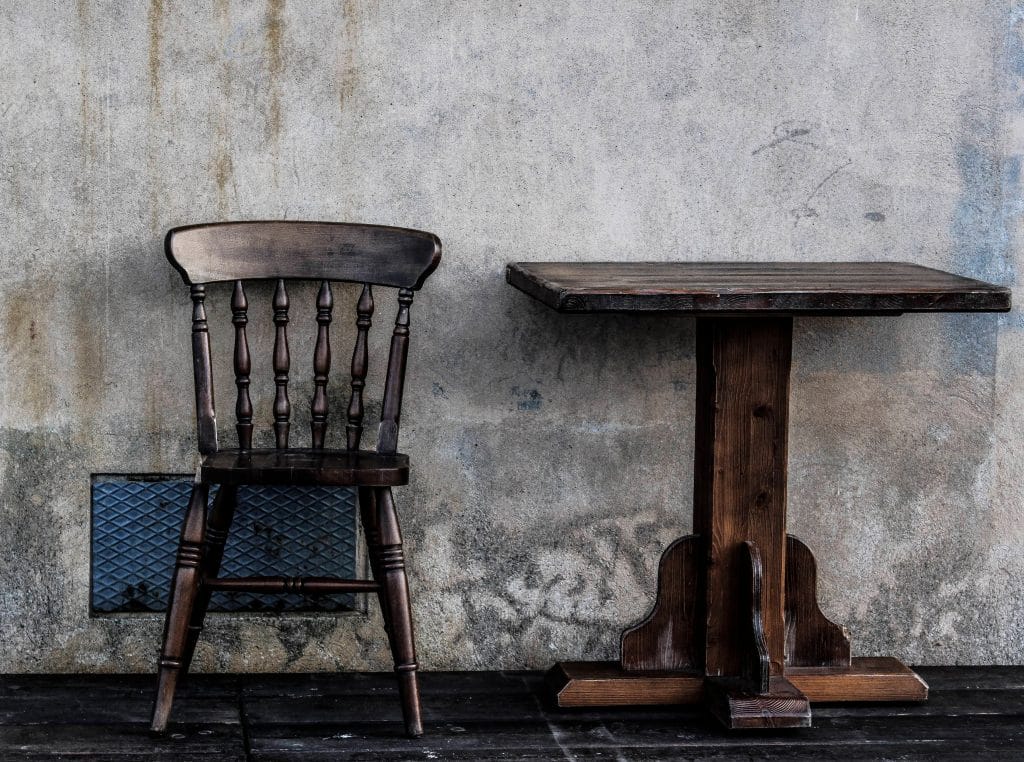When planning for the future, it’s just as important to consider what not to leave behind for your children as what you should. While some items may hold sentimental value, they could end up being more of a burden than a blessing. Here’s a surprising list of 20 things that you might reconsider leaving to your kids.
1. Outdated Electronics
Old electronics like VCRs, flip phones, and bulky TVs take up space and are likely obsolete. They’re not just impractical; they can also be expensive to dispose of properly. It’s better to recycle these items responsibly now rather than burden your children with them. Keeping up with technology trends ensures that if you do pass on electronics, they’re useful. Think current and practical when it comes to tech legacies.
2. Extensive Collections
Your treasured stamp, coin, or doll collections might not hold the same value for your children. These items can take up significant space and might not be as appreciated. Assess their emotional and monetary value before deciding to leave them in your will. Consider liquidating these collections and leaving your children the proceeds instead. An unburdened inheritance is often more valuable.
3. Old or Unused Furniture
That antique dresser or dining set might seem like a valuable heirloom, but style and space considerations vary greatly. Bulky furniture can be a logistical nightmare for children, especially if it doesn’t suit their taste. Consider asking your children if they have any interest in specific pieces before promising furniture. Selling unwanted items and gifting the proceeds can sometimes be more practical. Functional and emotional value should guide these decisions.
4. Inefficient Vehicles

An old car might seem like a useful gift, but if it’s not fuel-efficient or reliable, it could be more trouble than it’s worth. Maintenance, insurance, and potential mechanical issues can make this a burdensome gift. Consider selling older vehicles and creating a fund for a future car purchase instead. A financially smart inheritance can sometimes be more beneficial than a physical one. The key is to leave assets that improve, not complicate, your children’s lives.
5. Timeshares
While the idea of leaving a vacation spot for your children is appealing, timeshares often come with hidden fees and legal complexities. They can be difficult to sell and might not fit into your children’s vacation preferences. Research the true cost of ownership and explore other ways to leave a vacation legacy. An investment in a family travel fund could be a more flexible and enjoyable gift. Flexibility and practicality should be at the heart of such inheritances.
6. Personal Paperwork
Over the years, we accumulate stacks of personal paperwork – bills, receipts, old tax returns. Sorting through these can be a daunting task for your children. Shred and dispose of unnecessary paperwork regularly to prevent it from becoming their burden. Keeping important documents organized and discarding the rest can be a huge relief for your heirs. Legacy planning should include cleaning up personal paperwork to avoid unnecessary stress.
7. Out-of-Style Clothing
Fashion changes, and what was trendy a decade ago may not be today. Clothing that is outdated or worn out is unlikely to be used by your children. Consider donating these items or passing them on to someone who might appreciate them now. A few select, timeless pieces can be a wonderful keepsake, but let go of the rest. Your fashion legacy should be meaningful, not burdensome.
8. Knick-Knacks and Trinkets
While small souvenirs and trinkets can hold sentimental value, too many can become clutter. They might not hold the same meaning for your children and can be overwhelming to sort through. Choose a few special items to pass on and consider gifting or donating the rest. The aim is to leave behind memories, not clutter. A curated selection of keepsakes is more likely to be treasured.
9. Unresolved Debts
Possibly the least desirable thing to inherit, unresolved debts can create financial strain. Plan your finances carefully to ensure that your children aren’t burdened by debts after your passing. Life insurance policies and estate planning can help manage these issues. Clear communication about your financial situation can also prepare them for any potential obligations. A debt-free legacy is one of the best gifts you can give.
10. Excessive Home Decor
Your home décor might reflect your personal style, but it may not suit your children’s tastes. Oversized artworks, extensive ornament collections, or outdated decorative items can be difficult to integrate into different homes. Encourage your children to choose pieces they genuinely like before you pass them on. Downsizing your décor over time can also help. Leave behind a home that feels like a gift, not a storage unit.
11. Outdated Textbooks and Encyclopedias
In the digital age, outdated textbooks and encyclopedias are more likely to collect dust than impart knowledge. The information in them is often outdated, and they take up considerable space. Encourage a culture of digital learning and donate these books to make room for current resources. Modern learning is about accessibility and up-to-date information, which these old texts may not provide. Instead, leave behind a legacy of lifelong learning with access to current and digital educational resources.
12. Expired or Unused Medications
Leaving behind a cache of expired or unused medications can be not only useless but also dangerous. These should be properly disposed of, not passed down. Medications can lose their effectiveness over time and can be unsafe if used past their expiry date. Teach your children about the importance of proper medication management. Consider setting up a healthcare fund or investing in health insurance policies that will be more beneficial in the long run.
13. Dated Fashion Accessories
While vintage fashion can be charming, dated accessories often don’t align with current styles. Your children might not find the same value in old hats, belts, or handbags. These items can clutter closets and take up valuable space. Consider donating them to vintage shops or fashion schools where they can be appreciated. Leave a legacy of timeless style rather than dated fashion trends.
14. Old Magazines and Newspapers
Stacks of old magazines and newspapers are unlikely to be of interest to your children. These items often become a recycling burden. Encourage a habit of regular recycling to avoid accumulation. Digital archives and memory books are more space-efficient ways to preserve important events or articles. Leave behind a clean and clutter-free space that your children will appreciate.
15. Excessive Kitchen Gadgets
An overload of seldom-used kitchen gadgets can be more overwhelming than helpful. Many of these items are often specific to your cooking style and may not suit your children’s. Simplify your kitchen by keeping only the essentials and most loved items. Consider passing down a few cherished recipes or cookbooks instead. A legacy of culinary love and simplicity is more meaningful than a cluttered kitchen.
16. Incomplete Craft Projects
Incomplete craft projects can leave your children with the burden of figuring out what to do with them. It’s better to finish projects or donate the materials to someone who will use them. Leaving behind a few completed, meaningful craft pieces is a better option. Encourage creativity by providing resources and inspiration, not unfinished tasks. A legacy of completed and cherished craftwork holds more sentimental value.
17. Piles of Old Receipts and Bills
Old receipts and bills are rarely of any use to your children and can be a privacy concern. Regularly shredding and disposing of these documents is a good practice. Keeping important financial documents organized and discarding the rest is a thoughtful approach. Teach your children about financial organization and responsibility. Leave behind an organized and concise record of important financial documents.
18. Unfinished Home Improvement Supplies
Leftover paint cans, tiles, and other home improvement supplies can be more of a nuisance than a help. These items are often specific to your home’s decor and may not be useful for your children. Donate unused supplies to local community centers or dispose of them properly. Focus on completing home improvement projects to leave a well-maintained home. A legacy of a well-cared-for home is more valuable than a collection of DIY supplies.
19. Obsolete Home Décor
While certain home décor items can be sentimental, outdated or worn-out decorations may not fit into your children’s lifestyles. Consider refreshing your décor and only keeping pieces that have sentimental value or are timeless. Encourage your children to create their own style in their homes. Donating or selling outdated décor can be a way to simplify your legacy. Leave behind a home that feels welcoming and reflective of your family, not cluttered with outdated items.
20. Unnecessary Pet Supplies
If you have pets, it’s likely you’ve accumulated a variety of supplies over the years. However, these items may not be necessary or useful to your children, especially if they don’t have pets. Donate usable items to animal shelters and properly dispose of the rest. Consider setting up a pet care fund if your children will be taking over the care of your pets. A thoughtful plan for pet care is a more meaningful legacy than a pile of old pet supplies.
Leaving a Legacy of Value and Simplicity
The true value of a legacy lies not in the quantity of what we leave behind but, in the quality, and thoughtfulness of it. It’s about passing on items that have real meaning and use for our children, unburdened by the unnecessary and outdated. By focusing on what truly matters and simplifying our legacies, we can ensure that what we leave behind is cherished and appreciated. Let’s aim to leave a legacy that reflects our love, wisdom, and the essence of who we are, rather than just our possessions.

Latrice is a dedicated professional with a rich background in social work, complemented by an Associate Degree in the field. Her journey has been uniquely shaped by the rewarding experience of being a stay-at-home mom to her two children, aged 13 and 5. This role has not only been a testament to her commitment to family but has also provided her with invaluable life lessons and insights.
As a mother, Latrice has embraced the opportunity to educate her children on essential life skills, with a special focus on financial literacy, the nuances of life, and the importance of inner peace.





















Leave a Reply